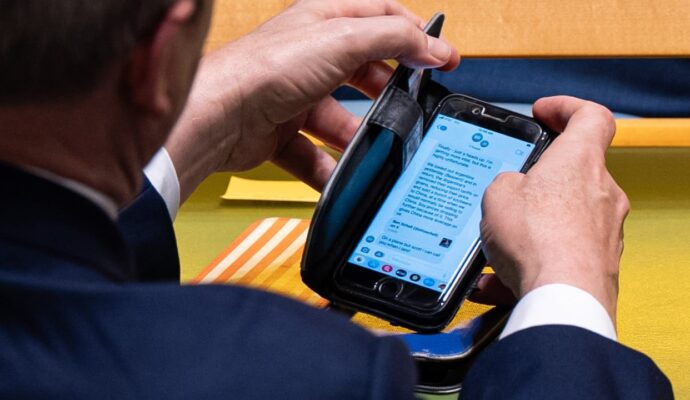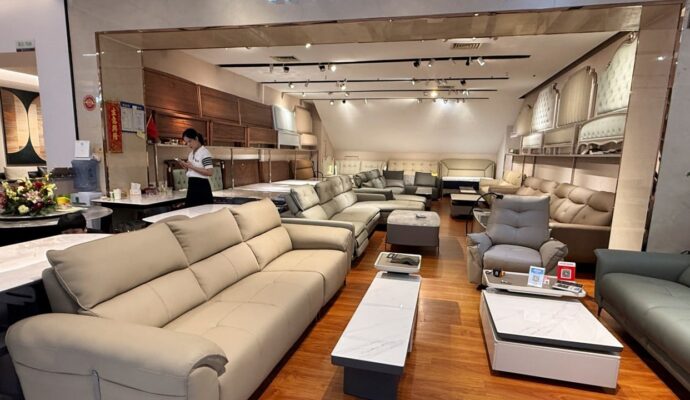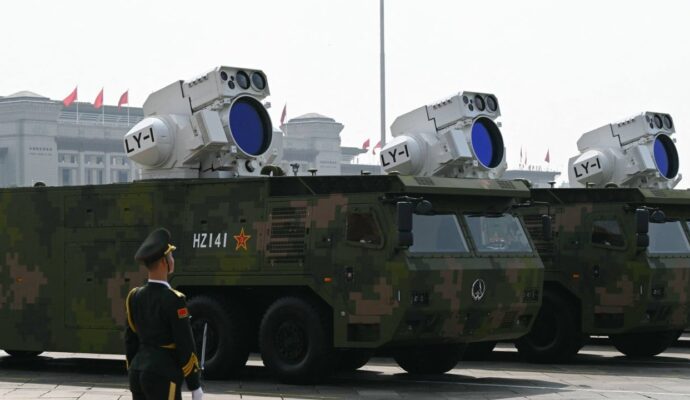BYD delivered a total of 508,706 cars in the first three months, down 25.6 per cent from the previous quarter.
It dethroned Tesla as the world’s largest electric car builder last year, bolstered by strong sales of its cars in China, the world’s largest EV market.
BYD unveils its YangWang U8 luxury electric SUV at the Shanghai Auto Show in Shanghai on April 18, 2023. Photo: Kyodo
Since October, 2022, thousands of drivers drifted towards BYD’s cars that are priced below 200,000 yuan – about 30 per cent cheaper than premium EVs assembled by Tesla and its Chinese rivals such as Nio and Xpeng – as they were unnerved by worries about job prospects and incomes.
Tesla spearheaded the price cuts, offering huge discounts on its Shanghai-made Model 3s and Model Ys twice between late October last year and early January this year. The prices of these cars have hit their lowest levels since the US carmaker’s Gigafactory 3 began operations at the end of 2019.
Xpeng, BYD and Aito, an EV brand backed by telecommunications equipment maker Huawei Technologies Company, followed suit. Manufacturers of petrol-powered cars and EVs, such as Volkswagen’s mainland ventures and Dongfeng Honda Automobile, also cut prices to reduce inventory.
BYD joined the price war in March, offering discounts of up to 20,000 yuan on its Dynasty series. Buyers of its bestselling model Seal, originally priced at 212,800 yuan, can receive an 8,888 yuan subsidy and a further 2,500 yuan cash award for switching from petrol-based cars to electric vehicles.
According to data from the China Passenger Car Association, BYD delivered 508,706 vehicles in the first quarter of this year, up 77 per cent from the same period in 2022.
Volkswagen’s two joint ventures on the mainland sold a combined 607,412 units – mostly petrol-powered vehicles – between January and March, down 15.4 per cent year on year.
Bloomberg reported that BYD already clinched the title of China’s bestselling car brand in the first three months of this year, citing data from the China Automotive Technology and Research Centre.
It said BYD sold more than 440,000 cars on the mainland, while Volkswagen recorded sales of 427,247 units.


